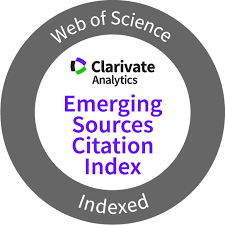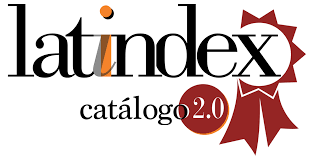Desinformación y alfabetización mediática desde las instituciones: los decálogos contra las fake news / Disinformation and media literacy from the institutions: the decalogues against fake news
DOI:
https://doi.org/10.5783/revrrpp.v10i20.675Keywords:
fake news, alfabetización mediática, comunicación institucional, infodemia, desinformaciónAbstract
Resumen
En un entorno marcado por la infoxicación, la rapidez e inmediatez con la que circula la información, la emocionalidad de los mensajes, la viralidad, la horizontalidad en la producción de contenido y la falta de confianza en las instituciones y medios, consideramos vital conocer el papel que juegan las instituciones en la lucha contra la desinformación. Por este motivo, nuestra investigación pretende establecer si existe coherencia entre las campañas visuales institucionales que alertan y alfabetizan sobre las fake news durante el Covid-19 y las recomendaciones de organismos nacionales e internacionales como la Comisión Europea, la UNESCO y la OMS. Tomando como eje de partida la importancia que estos organismos otorgan a la contextualización y consecuencias del problema, analizamos una muestra representativa de 20 recursos visuales a través del análisis de contenido y del análisis discursivo, para comprender si el enfoque de dichas campañas es el acertado. Los resultados arrojan una deficiencia en la cantidad de iniciativas, una falta de perspectiva en el enfoque, una limitación al público infantil y adolescente, además de a los adultos en el rol de padres, y una difusión insuficiente en sus perfiles de Twitter. El trabajo invita a una revisión y cohesión de las estrategias comunicativas institucionales como mecanismos de alfabetización mediática, al mismo tiempo que apuesta por la coordinación con medios, periodistas, educadores e instituciones gubernamentales para mejorar su efectividad.
Palabras clave: desinformación, alfabetización mediática, comunicación institucional, fake news, infodemia, redes sociales.
Abstract
In an environment characterized by infoxication, the speed and immediacy of information circulation, the emotionality of the messages, the virality, the horizontality in the content production, and the lack of trust in institutions and media, we consider vital the role that institutions play through their institutional advertising to deal with misinformation. For this reason, our research aims to establish whether there is coherence between the institutional visual campaigns, about fake news during Covid-19 and the recommendations of national and international bodies, such as the European Commission, UNESCO and the WHO. Based on the importance that these organizations give to the contextualization and consequences of the problem, we analyzed a representative sample of 20 visual resources through content analysis and discursive analysis to assess whether the approach of these campaigns is appropiate. We also studied the virality of the information through an analysis of the content diffusion on Twitter. Our results indicated an insufficient number of posters and decalogues, along with their limitation in dealing with disinformation. First of all, we observed a lack of coordination in the framing of the problem, because despite the detection mechanisms (contrast, source analysis, medium) are specified, and the non-viralization / dissemination is urged, intentionality and repercussion are directly and indirectly ignored. A 60% of the analysed decalogues did not mention the consequences of disinformation, neither in the short nor in the long term. A 20% explains the economic or political benefit that could be obtained from the dissemination of a deception and 15% explains the possible damage to health or reputation. Only a 5% mention the polarisation of public opinion. The secondary effects of fake news that institutional advertising exposed were: the damage to the digital identity, discrimination against individuals, the advantage of unethical businesses, the reduction in media confidence, the decrease in critical thinking, and the undermining of the confidence of institutions that do not even appear in the decalogues. Secondly, we appreciated a restriction of the campaigns to the child and adolescent public, as well as to adults in the role of parents. Dissemination is also a pending task for the institutions, since none of the initiatives were successful and went viral on Twitter, even less so in the case of the campaigns that we consider more complete in their approach. The conclusions of this work invite to revisit the institutional communication and advertising as tools for media and digital literacy through coordination with the media, journalists, educators, politicians and experts in the field. Order PCM / 1030/2020, of October 30, which publishes the procedure for action against disinformation opens a new path to study information disorders in Spain. From this point, the objective should be to analyse it from a structural prism which empowers citizens, not to assign them total responsibility for how they receive information.
Keywords: disinformation, media literacy, institutional comunication, fake news, infodemic, social networks.
Downloads
References
AMÓN, R. (2016). ‘Posverdad’, palabra del año. El País, 17 noviembre. Recuperado de: https://elpais.com/internacional/2016/11/16/actualidad/1479316268_308549.html
AMORÓS, M. (2018). Fake News. La verdad de las noticias falsas. Barcelona: Plataforma Editorial.
ANDRÉU ABELA, J. (s.f.). Las técnicas de análisis de contenido: Una revisión actualizada. Recuperado de: http://public.centrodeestudiosandaluces.es/pdfs/S200103.pdf
BADILLO, A. (2019). La sociedad de la desinformación: propaganda, «fake news» y la nueva geopolítica de la información. Madrid: Real Instituto Elcano. Recuperado de: https://cutt.ly/agBq8nV
BENAISSA PEDRIZA, S. (2018). De la comunicación institucional a las fake news. Miguel Hernández Communication Journal, 9(2), 543-548. http://dx.doi.org/10.21134/mhcj.v0i9.266
BUCKINGHAM, D. (2019) Teaching media in a ‘post-truth’ age: fake news, media bias and the challenge for media/digital literacy education, Cultura y Educación, 31(2), 213-231. https://doi.org/10.1080/11356405.2019.1603814
CAA (2020). Decálogo para proteger a los menores ante los bulos y noticias falsas en la red. Recuperado de: https://www.consejoaudiovisualdeandalucia.es/sites/default/files/publicacion/pdf/decalogo_pasa_del_bulo.pdf
CAC (2020). Activitat del CAC en relació amb la COVID-19. Recuperado de: https://www.cac.cat/es/activitat-del-cac-relacio-amb-la-covid-19
CÁRDENAS RICA, M.L. (2019). Análisis de las iniciativas fact-checking en España. Revista Inclusiones, 6 (núm. especial), 62-82. Recuperado de: http://www.archivosrevistainclusiones.com/gallery/4%20vol%206%20num%204%20sevilla2019octubdiciemb19incl.pdf
CCN-CERT BP/13 (2019). Desinformación en el ciberespacio. España: Gobierno de España. Recuperado de: https://www.ccn-cert.cni.es/informes/informes-de-buenas-practicas-bp/3549-ccn-cert-bp-13-desinformacion-en-el-ciberespacio/file.html
COMISIÓN EUROPEA (2018). Lucha contra la desinformación. Recuperado de: https://ec.europa.eu/info/live-work-travel-eu/health/coronavirus-response/fighting-disinformation_es
COMISIÓN EUROPEA (2020). European Democracy Action Plan. Recuperado de: https://ec.europa.eu/info/law/better-regulation/have-your-say/initiatives/12506-European-Democracy-Action-Plan
COSTA SÁNCHEZ, C. y LÓPEZ GARCÍA, X. (2020). Comunicación y crisis del coronavirus en España. Primeras lecciones. El profesional de la información, 29(3). https://doi.org/10.3145/epi.2020.may.04
DURÁN BECERRA, T. y MACHUCA, G. (Eds.). (2018). Comunicación y educación para la construcción de paz. Bogotá: Fondo Editorial CUN.
ELIZALDE, L. (2004). Estrategias en las crisis públicas. Buenos Aires: La Crujía Ediciones.
FERNÁNDEZ GARCÍA, N. (2017). Fake news: una oportunidad para la alfabetización mediática. Nueva sociedad, 269, 66-77. Recuperado de: https://dialnet.unirioja.es/servlet/articulo?codigo=6054552
FLOOD, A. (2016). ‘Post-truth’ named word of the year by Oxford dictionaries. The Guardian, 15 noviembre. Recuperado de: https://www.theguardian.com/books/2016/nov/15/post-truth-named-word-of-the-year-by-oxford-dictionaries
GARCÍA MARÍN, D. (2020). Infodemia global. Desórdenes informativos, narrativas fake y fact-checking en la crisis de la Covid-19. Profesional de la información, 29(4). https://doi.org/10.3145/epi.2020.jul.11
IRETON, C. Y POSETTI, J. (2018). Journalism, ‘fake news’ & disinformation: handbook for journalism education and training. Paris: Unesco Publishing. Recuperado de: https://unesdoc.unesco.org/ark:/48223/pf0000373349
LAGUILLO, D. (2020). La esfera de Platón: “individuos sombra” y “ciudadanos” ante la pandemia de bulos sobre el coronavirus COVID-19. Revista Española de Comunicación en Salud, [S.l.]. https://doi.org/10.20318/recs.2020.5419
LÓPEZ RICO, C. M, GONZÁLEZ ESTEBAN, J.L. y HERNÁNDEZ MARTÍNEZ, A.L. (2020). Polarización y confianza en los medios españoles durante el Covid-19. Identificación de perfiles de audiencia. Revista Española de Comunicación en Salud, [S.l.], 77-89. https://doi.org/10.20318/recs.2020.5439
MALDITA.ES, AFP, CORRECTIV, PAGELLA POLÍTICA, FACTA Y FULL FACT (2020). Infodemia Covid-19 en Europa: un análisis visual de la desinformación. Recuperado de: https://covidinfodemiceurope.com/
MCDOUGALL, J., BRITES, M.J., COUTO, M.J. Y LUCAS, C. (2019) Digital literacy, fake news and education, Cultura y Educación, 31(2), 203-212. https://doi.org/10.1080/11356405.2019.1603632
MORA, M. (2005). El poder de la conversación. Elementos para una teoría de la opinión pública. Buenos Aires: La Crujía Ediciones. Recuperado de: http://pdfhumanidades.com/sites/default/files/apuntes/El%20poder%20de%20la%20conversaci%C3%B3n.pdf
MORENO, A. FUENTES LARA, C. y NAVARRO, C. (2020). Covid-19 communication management in Spain: Exploring the effect of information-seeking behavior and message reception in public’s evaluation. El profesional de la información, 29(4). https://doi.org/10.3145/epi.2020.jul.02
OMS (2020a). La desinformación frente a la medicina: hagamos frente a la «infodemia». Recuperado de: https://www.who.int/es/news-room/commentaries/detail/coronavirus-infodemic
OMS (2020b). Gestión de la infodemia sobre la COVID-19: Promover comportamientos saludables y mitigar los daños derivados de la información incorrecta y falsa. Recuperado de: https://www.who.int/es/news/item/23-09-2020-managing-the-covid-19-infodemic-promoting-healthy-behaviours-and-mitigating-the-harm-from-misinformation-and-disinformation
ORDEN PCI/487/2019, de 26 de abril, por la que se publica la Estrategia Nacional de Ciberseguridad 2019, aprobada por el Consejo de Seguridad Nacional. Recuperado de: https://www.boe.es/eli/es/o/2019/04/26/pci487
ORDEN PCM/1030/2020, de 30 de octubre, por la que se publica el Procedimiento de actuación contra la desinformación aprobado por el Consejo de Seguridad Nacional. Recuperado de: https://www.boe.es/eli/es/o/2020/10/30/pcm1030
PÉREZ DASILVA, J.A., MESO AYERDI, K. y MENDIGUREN GALDOSPÍN, T. (2020). Fake news y coronavirus: detección de los principales actores y tendencias a través del análisis de las conversaciones en Twitter. El profesional de la información, 29(3). https://doi.org/10.3145/epi.2020.may.08
PÉREZ RODRÍGUEZ, A. y DELGADO PONCE, A. (2012). From digital and audiovisual competence to media competence: Dimensions and indicators. Comunicar, 39, 25-34. https://doi.org/10.3916/C39-2012-02-02
RAMONET, I. (1998). La tiranía de la comunicación. Madrid: Temas de Debate.
RAMÓN FERNÁNDEZ, F (2020). Comunicación y noticias falsas en relación al COVID-19: algunas reflexiones sobre la información, la desinformación y propuestas de mejora. Revista española de comunicación en salud, [S.l.], 253-264. Recuperado de https://doi.org/10.20318/recs.2020.5375
REY, J., LADERO, V. y MUÑOZ, E. (2020). Covid-19 genera miedo e incertidumbre. El peligro de los escépticos y los sarcásticos ante la pandemia. Asociación Española para el Avance de la Ciencia (AEAC). Recuperado de: https://aeac.science/covid19-miedo-e-incertidumbre/
SALAVERRÍA, R., BUSLÓN, N., LÓPEZ PAN, F., LEÓN, B., LÓPEZ GOÑI, I. y ERVITI, M.C. (2020). Desinformación en tiempos de pandemia: tipología de los bulos sobre la Covid-19. El profesional de la información, 29(3). https://doi.org/10.3145/epi.2020.may.15
SERRANO, P. (2009). Desinformación. Cómo los medios ocultan el mundo. Madrid: Editorial Península.
TORRES SORIANO, M.R. (2020). Democracia vs. desinformación. Propuestas para la protección de las sociedades abiertas, Fundación Centro de Estudios Andaluces, 87. Recuperado de: https://centrodeestudiosandaluces.es/publicaciones/n-87-democracia-vs-desinformacion-propuestas-para-la-proteccion-de-las-sociedades-abiertas
VÉLEZ, I. (2017). La formación en alfabetización mediática y competencia digital. Revista Fuentes, 19(2), 15-19. Recuperado de http://dx.doi.org/10.12795/revistafuentes.2017.19.2.01
ZAROCOSTAS, J. (2020). How to fight an infodemic. The Lancet, 395, 676. Recuperado de: https://www.thelancet.com/journals/lancet/article/PIIS0140-6736(20)30461-X/fulltext
Downloads
Published
How to Cite
Issue
Section
License
Authors publishing in this journal agree to the following terms:
a. Authors retain copyright and grant the journal the right to be the first publication of the work as licensed under a Creative Commons Attribution License that allows others to share the work with an acknowledgement of authorship of the work and initial publication in this journal.
b. Authors may separately enter into additional arrangements for non-exclusive distribution of the version of the work published in the journal (e.g., placing it in an institutional repository or publishing it in a book), with an acknowledgement of initial publication in this journal.
c. Authors are allowed and encouraged to disseminate their work electronically (e.g. in institutional repositories or on their own website) before and during the submission process, as it can lead to productive exchanges, as well as earlier and higher citation of published work (see The Effect of Open Access).




